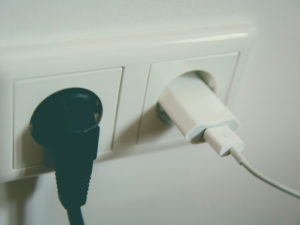Connect Fuel Production and Waste
Understanding the connection between how much energy you use and how much fuel it took to create that energy is an important first action step in reducing greenhouse gas emissions. Although it may not be obvious, there’s a direct connection between your energy use and the environment. When you consume less power, you reduce the amount of greenhouse gases released by power plants.
To generate electricity, most power plants burn coal, crude oil, or other fossil fuels. Although this method of creating energy has been relatively inexpensive, our planet pays the price—carbon dioxide, sulfur dioxide and nitrogen oxides are just a few of the byproducts that come from traditional methods of power generation. In addition, clean energy has now become cheaper to produce than fossil fuels.
Nothing in our world—cars, coffee, cat videos, even canned tuna—would exist without energy. Americans are heavy energy users, accounting for roughly one-sixth of world energy consumption. According to the U.S. Energy Information Administration (EIA), in 2022, total U.S. primary energy consumption per person was about 301 million British thermal units (Btu). This would require the burning of about 42,746 pounds of coal a year, which would be enough energy to charge 4,642,010 smartphones.
Turning off the lights at night or washing clothes in cold water can save trees, coal, natural gas and more. Cutting back on energy consumption reduces the amount of electricity that power plants have to make, subsequently reducing the amount of fossil fuels that are burned each day. Even a small change can make a tremendous difference—if every US household traded in just one incandescent light bulb for an efficient compact fluorescent lamp (CFL), the reduction in pollution would be equivalent to taking 1.3 million cars off the road.
When you opt to cut back on energy use, you also help conserve limited natural resources that would otherwise be used to power the power plants. Less demand for energy creates less demand for harvesting fossil fuels. Not only does demand reduce the amount of resources that power plants use, it reduces the demand for power plants themselves, which are a huge energy burden to build and maintain throughout the years.
Did you take this action? Report it!
Help us show our collective community impact by reporting that you took this action.




